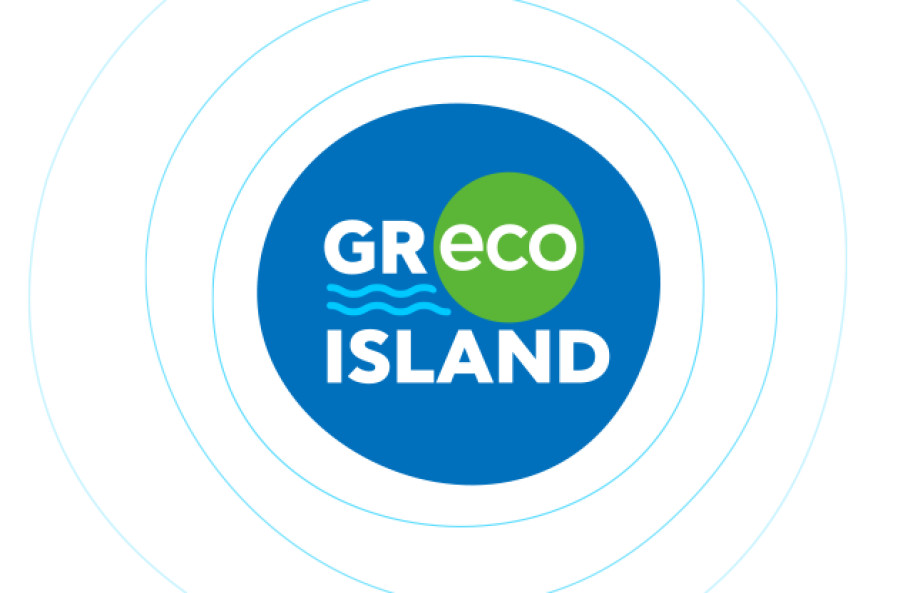Climate change is impacting Greece and the world, with rising temperatures, prolonged periods of drought and frequent and intense wildfires. These environmental shifts pose significant threats to the overall ecological balance of the Mediterranean, underscoring the urgent need for adaptive measures to mitigate escalating challenges.
In the battle against climate change, Greece has formed an ambitious plan to achieve net-zero emissions by 2050. Towards this goal, in 2019, the Greek government launched the GR-eco islands initiative, with the aim to transform the Greek islands into innovation hubs and models of green economy, energy autonomy, digital innovation and ecological mobility.
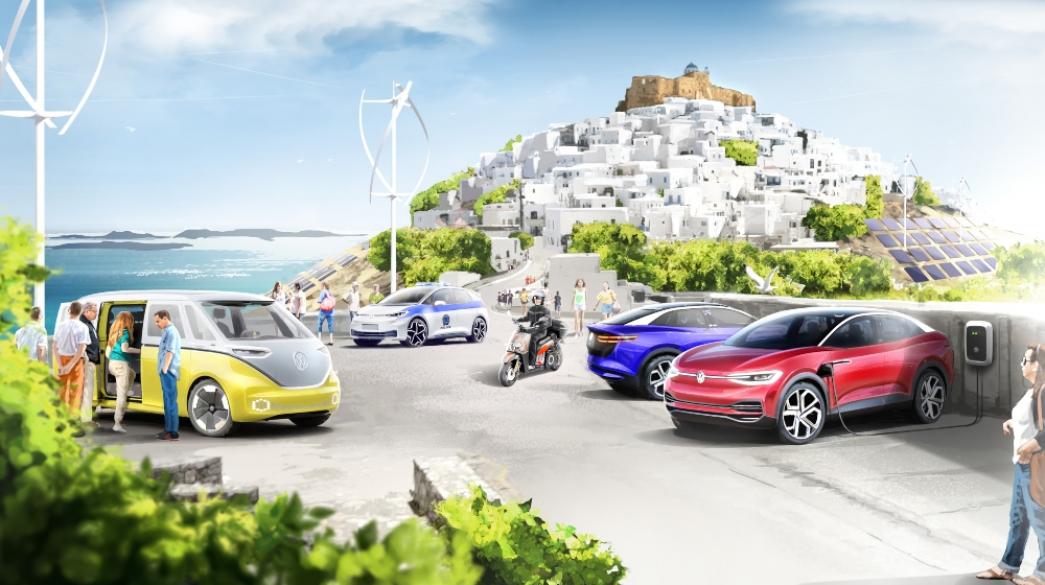
The GR-eco Initiative includes such actions as the increased use of Renewable Energy sources, the creation of digital infrastructure, the promotion of energy efficiency, the sustainable management of waste and water, e—mobility and the electrification of transport, and the green transformation of agriculture and tourism. To strengthen collaboration between the public and the private sectors, the GR-Eco Islands Initiative operates within the framework of public-private partnerships (PPP).
Chalki became Greece’s first GR-eco island, and aspires to become a model of energy transition, with the local community being at the forefront of energy transition. The Municipality of Chalki established the Energy Community “ChalkiON”. The installation of a 1 MW Photovoltaic plant and the use of the virtual-net-metering model (VNM), provide clean energy to the island’s residents transforming Chalki to the first energy self-sufficient island of Greece.
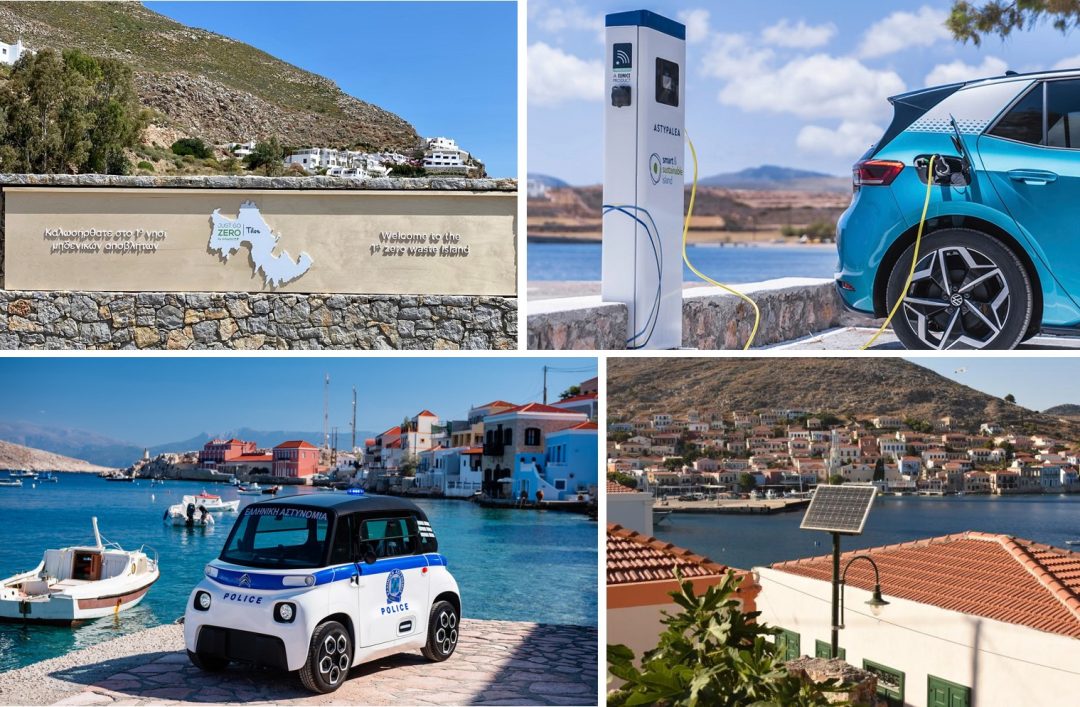
Another innovative project is being implemented in Astypalea. In 2020, the Greek government made a groundbreaking agreement with the Volkswagen Group to establish a state-of-the-art mobility system on the island, unique in the whole Mediterranean region. The ambitious project aims at both public and private transportation through a shared e-mobility model.
During the recent COP28 Summit, Prime Minister, Kyriakos Mitsotakis announced that the island of Poros would be the third island joining the GR-eco island initiative in cooperation with the UAE’s state-owned green energy company Masdar. Unveiling the plan, Prime Minister Mitsotakis stressed that Poros’ transformation into a green island is based on four pillars: First, the installation of a photovoltaic plant and the upgrading of the grid to cover a significant part of the island’s annual energy needs. Second, the electrification of the ferry link between Poros and Galata on the mainland, which will involve the deployment of a fully electric ferry, the electrification of part of the existing passenger fleet and the installation of charging infrastructure in the two ports. Third, the stimulation of the electrification in public transport and for private transport and travel. And fourth, the development of a new waste management and recycling system.
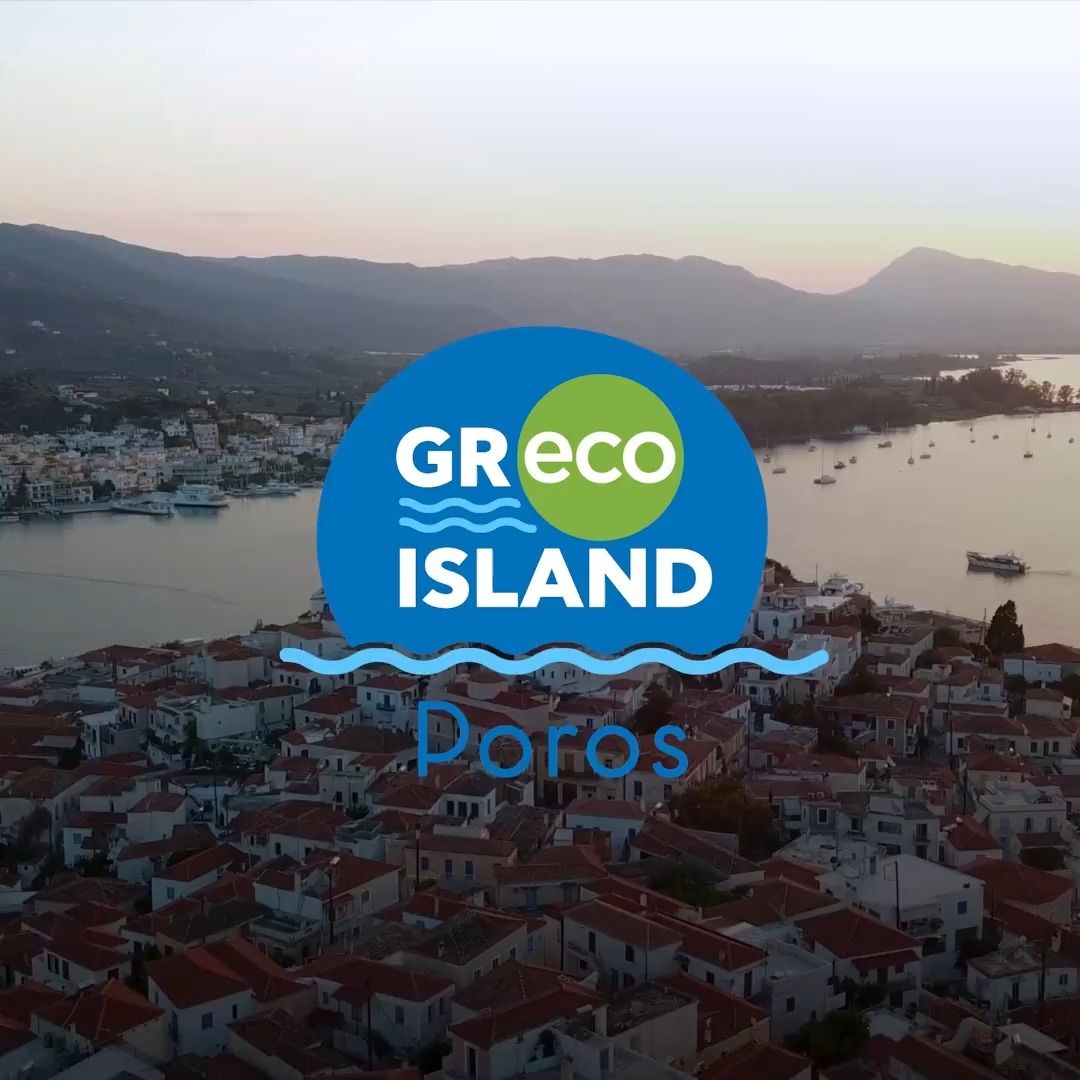
In addition to the GR-eco island initiative, a renewable energy revolution is also taking place on the remote island of Tilos, situated north west of the island of Rhodes, where the first hybrid power station in Greece was created utilizing energy from both wind farms and solar power generators. The pioneering European research Project TILOS (Technology Innovation for the Local Scale), has transformed the small island into an energy self-sufficient community, significantly reducing reliance on fossil fuel-based electricity generation. Additionally, Tilos can garner profit by selling its excess energy. Lastly, in Agios Efstratios, 85% of the local energy comes from wind turbines and photovoltaics.
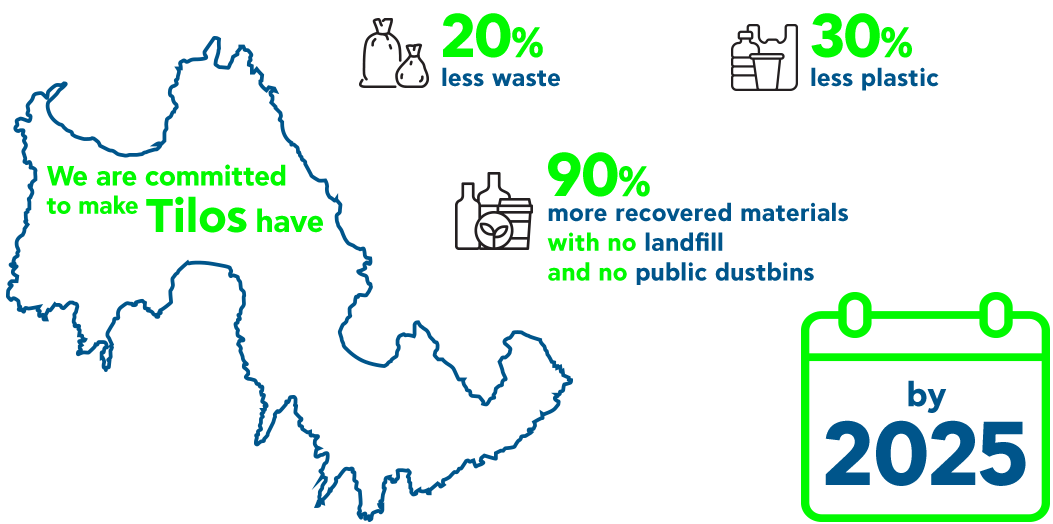
On the occasion of the COP28 Summit, it is worth noting that in 2022 Greece adopted its first National Climate Change Law, which set ambitious intermediate targets for reducing greenhouse gas emissions, as well as a carbon budgeting mechanism. Furthermore, Greece’s latest National Energy and Climate Plan (NECP) raises the country’s target for renewable energy to 28 GW by 2030, aiming to achieve 80% penetration of renewables in the country’s energy mix by 2030. Greece is already implementing a plan to de-lignite the country’s energy mix. As a result, in May 2023, Renewable Energy Sources (RES) accounted for more than half of the energy mix, with 54% of total electricity demand being met by solar, wind and hydro sources, while in 2022 Greece was in 7th place worldwide in terms of utilization of solar and wind energy sources.
The importance Greece places on green transition is reflected in the National Recovery and Resilience Plan “Greece 2.0” (2021-2026), where 37.5% of the Plan supports climate objectives aiming to increase the share of RES in Greece’s energy mix.
Regarding the islands, the main goal is the electrical interconnection of Greece’s largest islands by 2030 and a hybrid system ensuring 80% greenhouse gas reduction for the smaller islands. Lastly, firmly committed to the protection of Oceans, and aiming to strengthen cooperation for collective action on all major issues affecting Oceans, Greece will host the 9th “Our Ocean Conference” in Athens on April 16-17, 2024
This is an article taken from Greece In America, the official newsletter of the Embassy of Greece in Washington
Read also via Greek News Agenda: Chalki, the first Gr-Eco Island; Forty Greek islands are going “green”; “Just Go Zero Tilos”: Greece’s first zero-waste island; Greece’s renewable energy landscape
TAGS: ENVIRONMENT | GOVERNMENT & POLITICS

